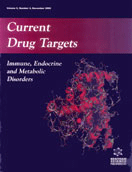Abstract
Protozoans of the genus Cryptosporidium are the etiological agents of opportunistic infections mainly of the gastrointestinal tract of animals and humans. Young and elderly persons, those with concomitant infections, with AIDS, under an immunosuppressive therapy, with congenital T-cell, B-cell or other effector cell deficiencies develop persistent progressive infections of different degree of severity related to the level of immunodepression. Both humoral and cellular immunity play a role in the control of this infection, but the latter plays the major role, mainly in the intestinal mucosa. However, a natural resistance to these coccidian parasites is also involved. IgG, IgM and IgA have been detected in serum and mucosa of humans and animals with the resolution of the infection; but also high levels of these immunoglobulins have been detected in persons with AIDS with chronic cryptosporidiosis. In HIV-positive persons, CD4+ T-cells are required to prevent the establishment of the infection and IFN-γ and CD4+ T-cells can also limit the duration and the clinical manifestations of the infection. In persons exposed to cryptosporidial infections, it has been possible to show the important role of IFN-γ in both the innate and acquired cell mediated immunity. The severity of cryptosporidiosis has been also associated with the inability to produce IFN-γ. An antibody therapy using bovine colostrum from cows hyperimmunised with Cryptosporidium oocysts or monoclonal antibodies against sporozoite antigens has been developed at the experimental level mainly for persons with AIDS or with other immunodeficiencies; however, these preparations of antibodies have shown only a limited degree of efficacy both in animals and humans.
Keywords: cryptosporidium, opportunistic infection, humoral immunity, antibodies, antigens, cellular immunity, mucosal immunity, immunotherapy
 1
1


















